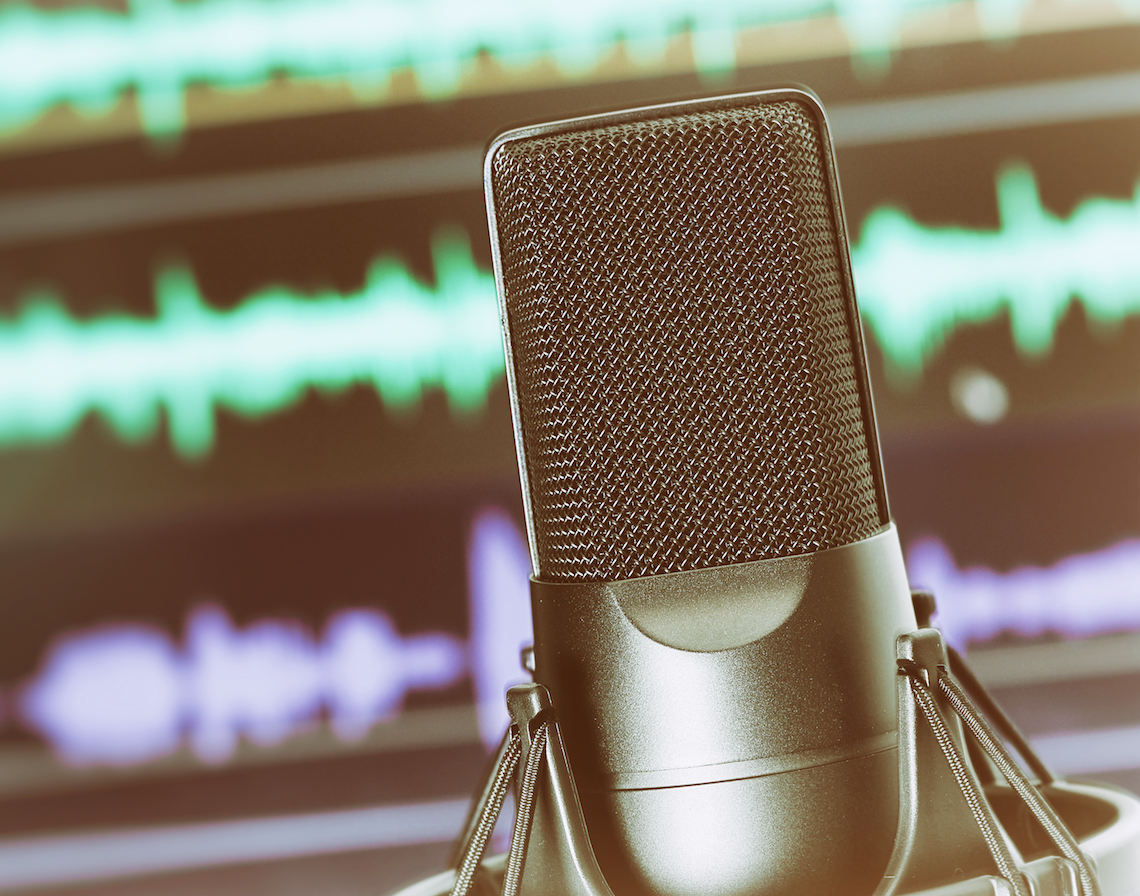
Niche podcasts with a small but engaged audience have the potential to be the biggest money-making audio shows for publishers, a conference heard last week.
DC Thomson, the eighth biggest UK consumer magazine publisher by circulation and the owner of the UK’s first and third biggest regional daily newspapers, produces 13 podcasts and has found financial success with some of its most specialist output.
Speaking on a panel about podcasts at The Publishing Show on 9 March, DC Thomson’s head of podcasts Christopher Phin said B2B brand Energy Voice’s podcast Energy Voice Out Loud, is the publisher’s biggest-earning podcast.
He said it is “comfortably pushing towards six figures in this financial year in sponsorship revenue” with “an average download of 260-something. It’s miniscule”.
This is through creative monetisation such as branded content and making native series with brands like Natwest and EY, he added.
“Traditionally podcasts… are monetised through dynamic ad insertion which is charged on a CPM basis – but the money’s pants,” Phin said. “Unless you’re at this half a million download number you’re never going to get good revenue out of that.”
Similarly panel host Peter Houston of the Media Voices Podcast, run by the Media Voices team who organise the Publisher Podcast Awards, revealed that their biggest episode ever had 3,500 listens, with average listenership normally somewhere up to 1,000.
“We monetise that,” he said. “We charge people £2,500-£3,000 to be a sponsor around that. So you don’t have to have 500,000 downloads.”
The New Statesman’s Britain editor Anoosh Chakelian, who co-hosts The New Statesman Podcast, had revealed “we are attractive to sponsors because we get 500,000 downloads a month which is big for a political podcast”.
But she said building The New Statesman’s reputation is the more important outcome of the podcast.
She said the podcast, which goes out to subscribers a day before non-subscribers, was all about speaking to the magazine’s core audience and “building up that club” – but also remaining accessible to newcomers by not assuming a high level of politics knowledge.
She added: “People do join the New Statesman or subscribe or come and read our pieces through the podcast so we are attracting new audiences as well.”
Phin said DC Thomson is “still very much in an experimental stage” with its podcasts and that there is no single answer to what makes a successful show because it depends on the strategic objective of its associated brand.
“[We’re] looking at what can podcasts do for us, where are the successes, what does success look like, and coming to the realisation that there is no one-size-fits-all solution for what podcasts can do for a publisher, no one answer to how are you measuring success with your podcast,” he said.
“Some of them are in terms of downloads, some of them are in terms of revenue where we’ve got some really good successes, but also looking at the extent to which teams are engaged – dwell times, listen times…”
Phin revealed that Reading Between The Lines, the podcast which launched in 2020 from the 153-year-old women’s weekly The People’s Friend, converted 2% of listeners into magazine subscribers through a trial subscription offer that was promoted during the podcast.
“Given the lifetime value of a People’s Friend subscriber, that’s terrific,” he said.
The value of niche subjects was also demonstrated at The Courier and The Press & Journal’s Scottish politics podcast The Stooshie, Phin said, where the most popular episode so far has been an “incredibly niche inside baseball story” that unmasked two Conservative councillors who were running anti-SNP troll accounts.
“The reason that that’s true is because it talks to a national conversation about civility in politics,” Phin said, adding: “That’s really interesting to me because you can still do hyperlocal, you can super-serve a very niche audience, but you can also develop content in a way that is interesting and bring in people from a broader audience as well.”
Phin added that DC Thomson is keen to ensure its podcast hosts become “superstars in their own right” – meaning they have a platform that builds a sense of trust between them and their audiences, which translates to all of their bylined work.
He said it is important to “draw out that personality” from the podcasters, but that this is “an anathema to how a lot of them have done their journalism training”.
Similarly at The New Statesman Chakelian said listeners “feel they can connect with the personalities”.
“I think a podcast is a really useful format for a journalist, especially for the journalism that me and my colleagues do, because you can bring in some of that colour, you can bring in some of your personality but also some of the colour you might have picked up from around Westminster or the sources that you’re speaking to that you might not include in a piece because it’s not double-sourced, it’s not necessarily the heart of the piece.
“And I’ve noticed that journalists on some of the BBC podcasts like Brexitcast have done that as well, where they’ve said ‘I was chatting to an MP today and they actually described it like this’. That might not necessarily come into a piece that you’re writing but it can… give a bit of an insider insight to the listeners.”
Picture: Shutterstock/spaxiax
Email pged@pressgazette.co.uk to point out mistakes, provide story tips or send in a letter for publication on our "Letters Page" blog
